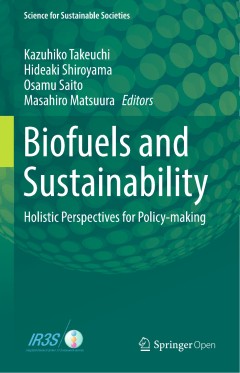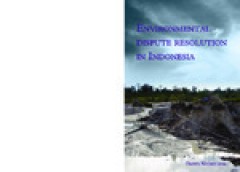Filter by
# Debug Box
/var/www/htdocs/pustaka-digital/lib/SearchEngine/SearchBiblioEngine.php:688 "Search Engine Debug 🔎 🪲"
Engine Type ⚙️: "SLiMS\SearchEngine\SearchBiblioEngine"
SQL ⚙️: array:2 [ "count" => "select count(sb.biblio_id) from search_biblio as sb where sb.opac_hide=0 and ((match (sb.topic) against (:subject in boolean mode)))" "query" => "select sb.biblio_id, sb.title, sb.author, sb.topic, sb.image, sb.isbn_issn, sb.publisher, sb.publish_place, sb.publish_year, sb.labels, sb.input_date, sb.edition, sb.collation, sb.series_title, sb.call_number from search_biblio as sb where sb.opac_hide=0 and ((match (sb.topic) against (:subject in boolean mode))) order by sb.last_update desc limit 10 offset 0" ]
Bind Value ⚒️: array:1 [ ":subject" => "'+\"Environmental law\"'" ]

The environmental rule of law for oceans: designing legal solutions
Our oceans need a strong and effective environmental rule of law to protect them against increased pressures and demands, including climate change, pollution, fisheries, shipping and more. The environmental rule of law for oceans requires the existence of a set of rules and policies at multiple governance levels that appropriately regulate human activities at sea and ensure that pressures on th…
- Edition
- -
- ISBN/ISSN
- 9781009253741
- Collation
- xxxiii, 380 pages; illustration
- Series Title
- -
- Call Number
- 341.4 POZ t

International courts versus non-compliance mechanisms: comparative advantages…
The effective implementation of treaties is essential. This book examines the advantages of non-compliance mechanisms (NCMs) versus that of international courts and tribunals to support treaty fulfilment. It brings together globally-recognised names in international law, human rights law, environmental and climate change law, and trade law.
- Edition
- -
- ISBN/ISSN
- 9781009373913
- Collation
- xx, 508 pages; illustration
- Series Title
- -
- Call Number
- 341.5 VOI i

Nuclear law : the global debate
This open access book traces the journey of nuclear law: its origins, how it has developed, where it is now, and where it is headed. As a discipline, this highly specialized body of law makes it possible for us to benefit from the life-saving applications of nuclear science and technology, including diagnosing cancer as well as avoiding and mitigating the effects of climate change. This book se…
- Edition
- -
- ISBN/ISSN
- 9789462654952
- Collation
- viii + 333 p
- Series Title
- -
- Call Number
- 343.0925 NUC n

Environmental groups and legal expertise : shaping the Brexit process
Environmental Groups and Legal Expertise explores the use and understanding of law and legal expertise by environmental groups. Rather than the usual focus on the court room, it scrutinises environmental NGO advocacy during the extraordinarily dramatic Brexit process, from the referendum on leaving the EU in June 2016 to the debate around the new Environment Bill in the first half of 2020. T…
- Edition
- -
- ISBN/ISSN
- 9781787358584
- Collation
- xxi, 191 p.
- Series Title
- -
- Call Number
- 344.4046 ENV C

Rangeland systems: process, management and challenges
This book is open access under a CC BY-NC 2.5 license. This book provides an unprecedented synthesis of the current status of scientific and management knowledge regarding global rangelands and the major challenges that confront them. It has been organized around three major themes. The first summarizes the conceptual advances that have occurred in the rangeland profession. The second addresse…
- Edition
- -
- ISBN/ISSN
- 9783319467092
- Collation
- xv, 661p.: ill.
- Series Title
- -
- Call Number
- 577.4 RAN r

The future of the law of the sea : bridging gaps between national, individual…
It explores the diverse phenomena which are challenging the international law of the sea today, using the unique perspective of a simultaneous analysis of the national, individual and common interests at stake. This perspective, which all the contributors bear in mind when treating their own topic, also constitutes a useful element in the effort to bring today’s legal complexity and fragmenta…
- Edition
- -
- ISBN/ISSN
- 9783319512747
- Collation
- xx, 269p. : ill.
- Series Title
- -
- Call Number
- 341.4 FUT f

Freshwater governance for the 21st century
The objective of this book is to broadly illustrate the key aspects of water governance, mapping the spectrum of decision-making from techno-centric and eco-centric approaches, to hybrid concepts and people-centric approaches. Topics covered include the challenges for water-governance models, the polycentric model, the integration challenge, water in the decision-making hierarchy, and the rise …
- Edition
- -
- ISBN/ISSN
- 9783319433509
- Collation
- xxvii, 250p. : ill.
- Series Title
- -
- Call Number
- 343.0924 FRE f

Satellite Earth observations and their impact on society and policy
The result of a workshop bringing together an international advisory board of experts in science, satellite technologies, industry innovations, and public policy, this book addresses the current and future roles of satellite Earth observations in solving large-scale environmental problems. The book showcases the results of engaging distinct communities to enhance our ability to identify emergin…
- Edition
- -
- ISBN/ISSN
- 9789811037139
- Collation
- xxv, 221p. : ill.
- Series Title
- -
- Call Number
- 550.285 SAT s

Biofuels and sustainability : holistic perspectives for policy-making
This open access book presents a comprehensive analysis of biofuel use strategies from an interdisciplinary perspective using sustainability science. This interdisciplinary perspective (social science-natural science) means that the strategies and policy options proposed will have significant impacts on the economy and society alike. Biofuels are expected to contribute to reducing greenhouse ga…
- Edition
- -
- ISBN/ISSN
- 9784431548959
- Collation
- vi, 265p. : ill.
- Series Title
- -
- Call Number
- 338.927 BIO b

Environmental dispute resolution in Indonesia
In the last two decades, Indonesia has seen a dramatic proliferation of environmental disputes in a variety of sectors, triggered by intensified deforestation and large scale mining operations in the resource rich outer islands, together with rapid industrialisation in the densely populated inner island of Java. Whilst the emergence of environmental disputes has sometimes attracted political re…
- Edition
- -
- ISBN/ISSN
- 9789067183260
- Collation
- xvii, 334p.
- Series Title
- -
- Call Number
- 344.598046 NIC e
 Computer Science, Information & General Works
Computer Science, Information & General Works  Philosophy & Psychology
Philosophy & Psychology  Religion
Religion  Social Sciences
Social Sciences  Language
Language  Pure Science
Pure Science  Applied Sciences
Applied Sciences  Art & Recreation
Art & Recreation  Literature
Literature  History & Geography
History & Geography